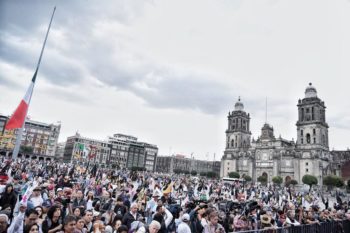
Photos by Daniel Orozco
This October 2, 2018, more than 90,000 people marched to remember the massacre of Tlatelolco. Gathered in the Plaza de las Tres Culturas, the demonstrators set off at 4 o’clock in the afternoon to walk to the capital’s Zócalo, or central plaza.
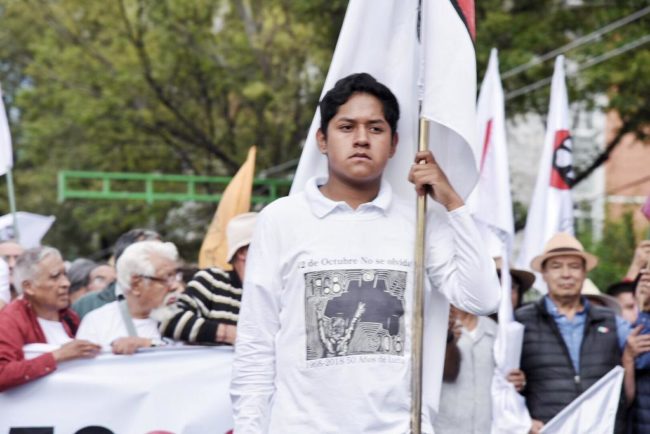 Fifty years since the attack that marked contemporary Mexican history, the demands of 1968 are still alive, the Mexican State has still not told the truth about what happened that day and the guilty have still not been held responsible. The UN Human Rights Commission lamented again this year, “the absence of an adequate investigation”.
Fifty years since the attack that marked contemporary Mexican history, the demands of 1968 are still alive, the Mexican State has still not told the truth about what happened that day and the guilty have still not been held responsible. The UN Human Rights Commission lamented again this year, “the absence of an adequate investigation”.
Thousands of marchers cried out, “October 2ndwill never be forgotten!” as they puored through the streets of Mexico City. Half a century later, many young people– born decades after the repression—marched with the survivors. Several generations joined forces to demand the truth and justice.
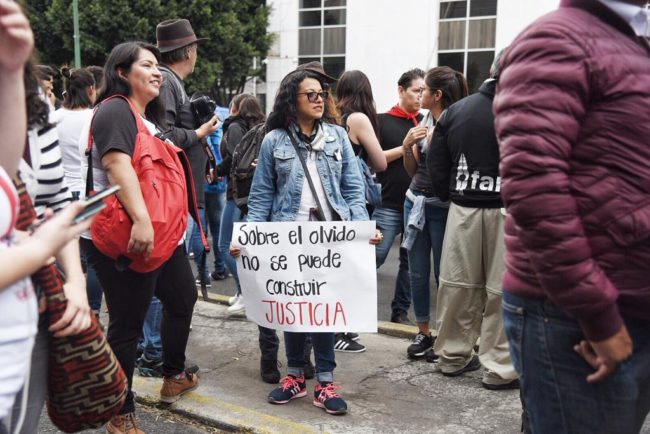 Justice for the victims of the Tlatelolco massacre. Justice for the forty-three normalistas of Ayotzinapa.
Justice for the victims of the Tlatelolco massacre. Justice for the forty-three normalistas of Ayotzinapa.
“I remember, we remember. This is our way of helping dawn to break On many sullied consciences, On an angry text, on a gate swung open, On the face covered behind the mask.
I remember, let’s remember Until justice settles in among us. ” Karina Gidi read the poem by Rosario Castellanos to open the event demonstrators continued to stream into the Zócalo.
What happened on October 2, 1968, was the expression of the violence of the State, of its gross repressive response to the democratizing demands of its youth. The Mexican government gave the order to repress, firing directly at the students. Many—we still don’t know how many–died; others were injured, beaten, arrested, disappeared. In the massacre, the “main actor” was the army, Dr. Rodolfo Gamiño Muñoz reminds us. And there is still no justice.
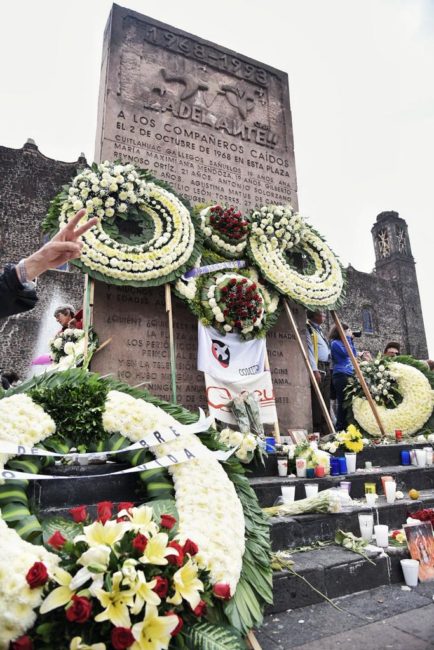
There are many links between the Tlaletolco massacre and the disappearance of the 43 teaching college students of Ayotzinapa. In both cases, society pointed the finger: It was the State! In one of the first demonstrations to demand that the students be returned alive, the phrase appeared written in giant letters on the ground as the crowd cleared. Both crimes showed the violence directed by a criminal State and its army against its youth.
This October 2, the parents of the Ayotzinapa studentsmarched and added their raised voices to the multitude in the Zócalo. In the tribute to the victims of Tlatelolco and to protest the silence and darkness on the part of the State they demanded that these crimes never be repeated.
Between the pain and the rage, there was also the hope of a change.
1968 has become the emblematic tragedy in Mexican history. But at the same time, the 1968 movement has become synonymous with the struggle for freedom. Hernández Gamundi said it, in a speech that sounded like a promise. Since then “the desire for freedom has grown,” “journalism has flourished,” “the universities have grown stronger”, he said. Mexico has united in “a project to build a new country.”
Jan Jarab, UN representative in Human Rights, stressed, “the cause of human rights in Mexico cannot be explained without the dawn of indignation and creativity of five decades ago. In large part, the spaces where we can breathe freedom today in the country are the legacy of the student movement of 1968. “.
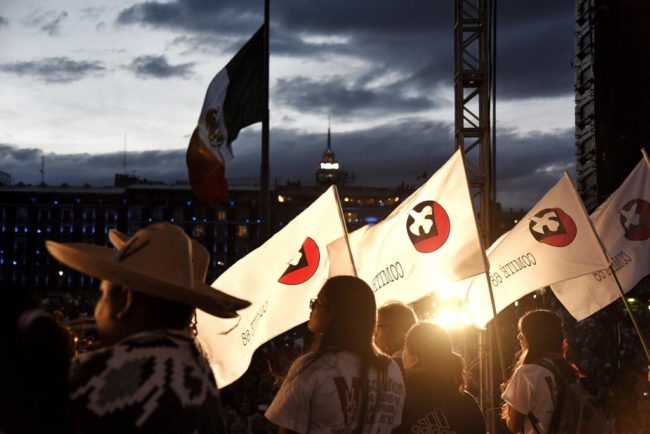
Hernández Gamundi called on everyone to join in. “A single generation cannot make a change in this country“. He urged people to recover the experience of the ‘68 movement that “did not stop fighting for half a century demanding justice” by peaceful means. “We must rescue our dreams and our possibilities to live happily“.
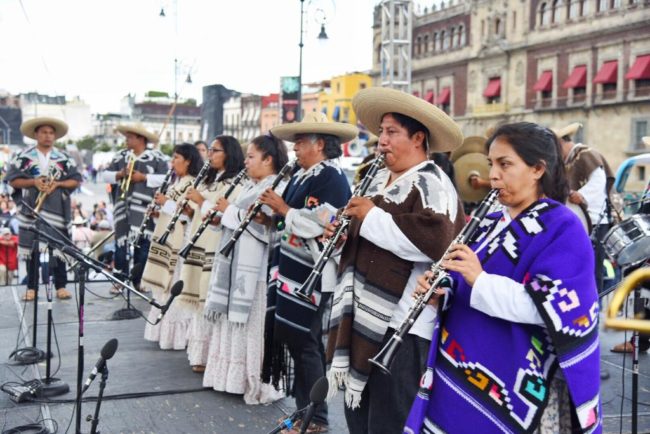 The opportunity here is to transform the country into a “free, democratic and just” nation, and this is what the movement begun in 1968 was–and is–all about.
The opportunity here is to transform the country into a “free, democratic and just” nation, and this is what the movement begun in 1968 was–and is–all about.
Photos by Daniel Orozco



